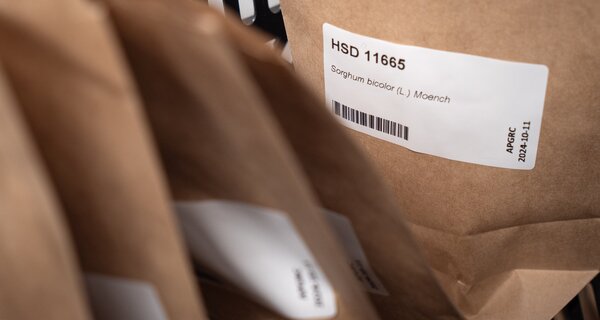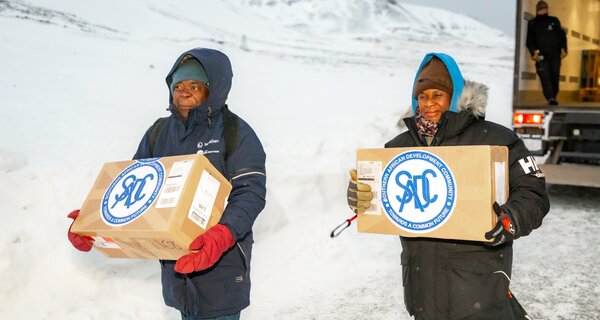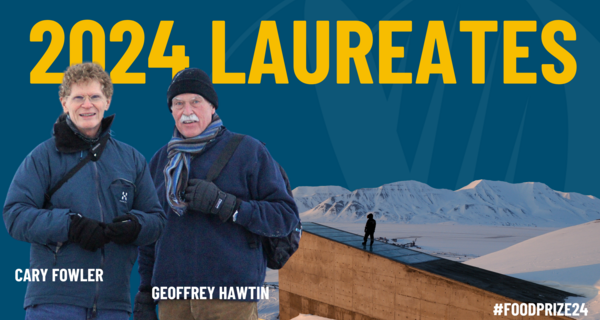Inaugural International Svalbard Dialogue: Saving Seeds for the Long Haul
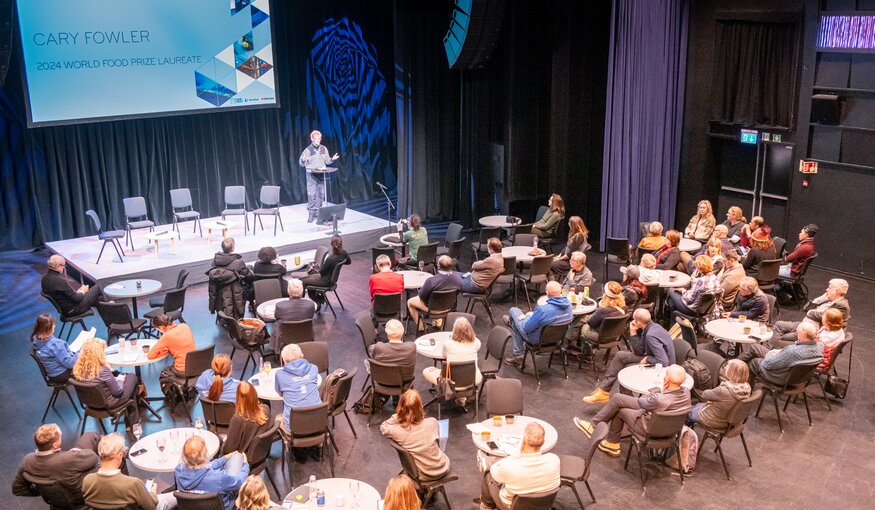
28 March 2025
On 25 February 2025, the Svalbard Global Seed Vault received a landmark deposit. Twenty-one genebanks deposited over 14,000 seed samples. Many of the seeds were special. Sorghum and pearl millet from war-torn Sudan. Culturally significant velvet beans from Malawi. Seeds from a genebank in the Philippines ravaged by typhoons and fire, from community-maintained collections across Zimbabwe and from the host of this year’s COP30 UN Climate Change Conference, Brazil. This deposit brought the total number of seeds samples safely stored in the Seed Vault to more than 1.3 million.
These disparate depositors in fact have something in common. They successfully backed up safety duplicates of their seeds in Svalbard with support from the Biodiversity for Opportunities, Livelihoods, and Development (BOLD) project. This ambitious initiative, generously funded by the Norwegian government and managed by the Crop Trust, has played a crucial role in securing crop diversity for future generations.
The February 2025 deposit marked the culmination of BOLD support for Seed Vault deposits. To commemorate this milestone, ten BOLD partners traveled to Svalbard to witness firsthand as their seeds were safely placed in the Vault’s icy chambers. While this chapter of the BOLD project has come to a close, it leaves behind a legacy of success and a strong foundation for future efforts. The Crop Trust recognizes the immense potential of these seeds, not just for the countries depositing them, but for global food security.
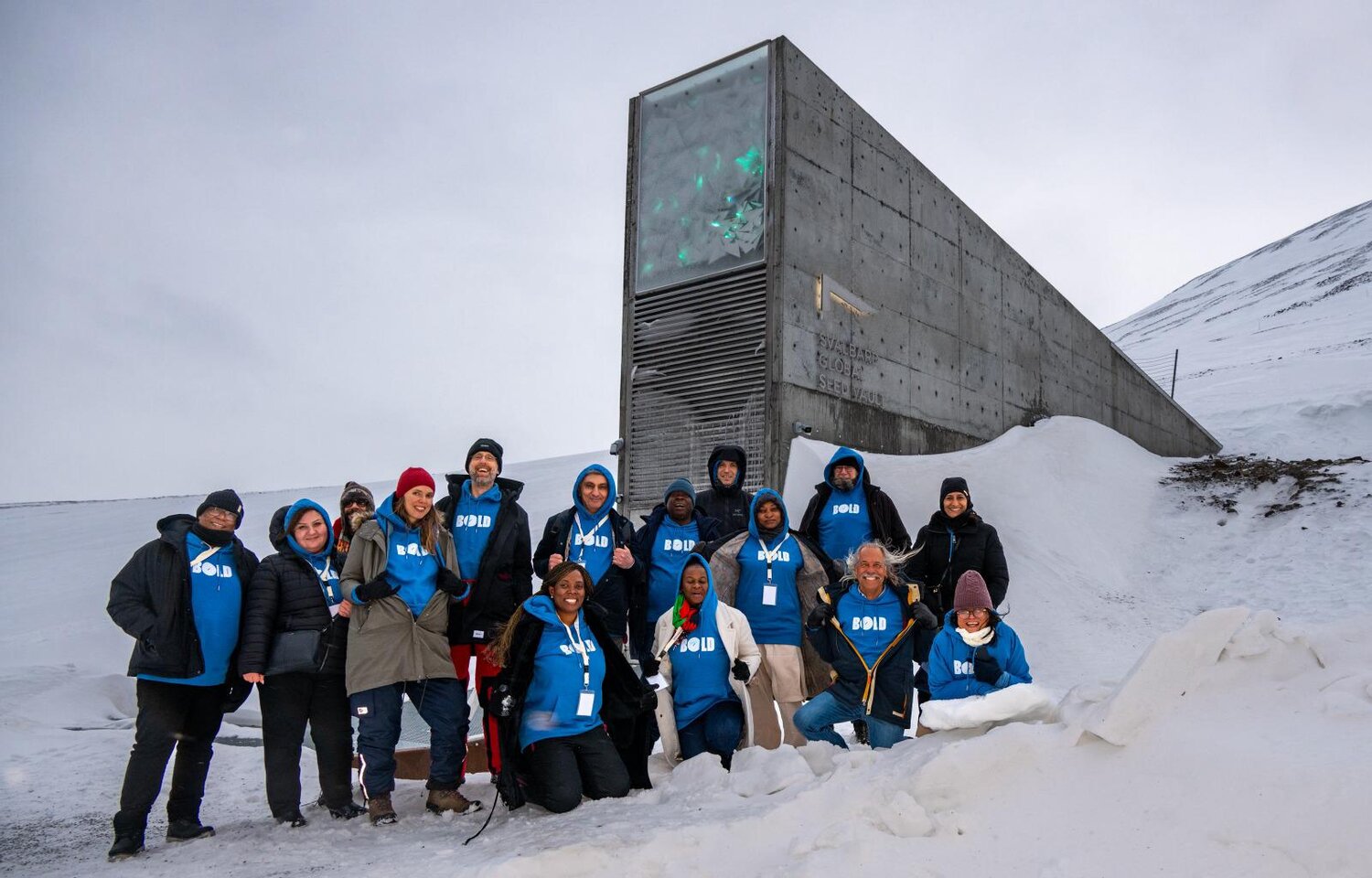
BOLD depositors and Crop Trust representatives gather around the Seed Vault after the deposit ceremony.
To ensure the lessons from five years of BOLD support, and over 15 years of safeguarding seeds in Svalbard, continue to shape the future, the Crop Trust hosted the Svalbard International Dialogue immediately after the deposit ceremony.
As Arctic winds howled outside, participants gathered to exchange experiences – both triumphs and challenges – and discuss ways to strengthen the conservation and use of crop diversity. Together, they explored strategies to build a more resilient and robust global food system, ensuring that the diversity safeguarded today remains a lifeline for generations to come.
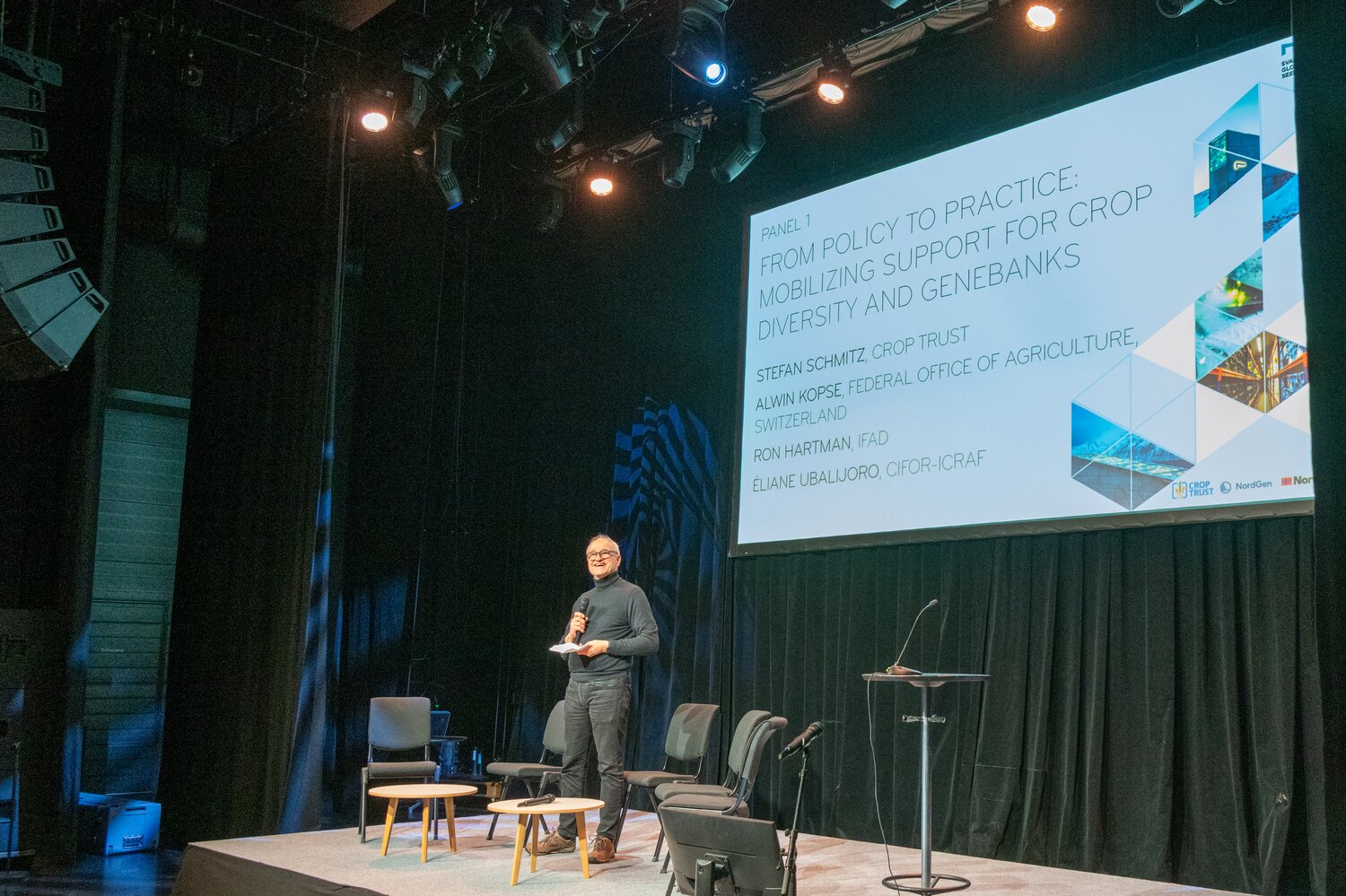
Dr. Stefan Schmitz, Executive Director of the Crop Trust, opens the first Svalbard International Dialogue.
To open the Dialogue, Lise Lykke Steffensen, Executive Director of NordGen, shared her reflections on the successful deposit into the Seed Vault earlier that day, highlighting how it serves as a symbol for global cooperation.
“How do you describe the feeling of seeing boxes from North Korea and South Korea within the Seed Vault? It is a very special feeling. This is a peacekeeping mission we are on,” said Dr. Steffensen.
Dr. Cary Fowler, the visionary behind the Seed Vault and one of the 2024 World Food Prize Laureates, then delivered a keynote address. He described the Seed Vault as a powerful symbol of humanity’s commitment to safeguarding crop diversity, emphasizing that "people conserve what they love. And our job is to help people fall in love with what we're doing here." He also shared his insights on how the Crop Trust can advance its mission.
“The value of the Crop Trust lies in [its] value proposition. The fact that we recognize that creating this global [genebank] system, that works to conserve diversity and make it available, requires some coordination and it requires some tough decisions to be made. If we want to touch the hearts of the people that really make the decisions here, and we want to build commitment and trust, we must be using the most powerful ambassador that we have in our field. The one that you can google and find millions of hits for -- the Seed Vault,” said Dr. Fowler.
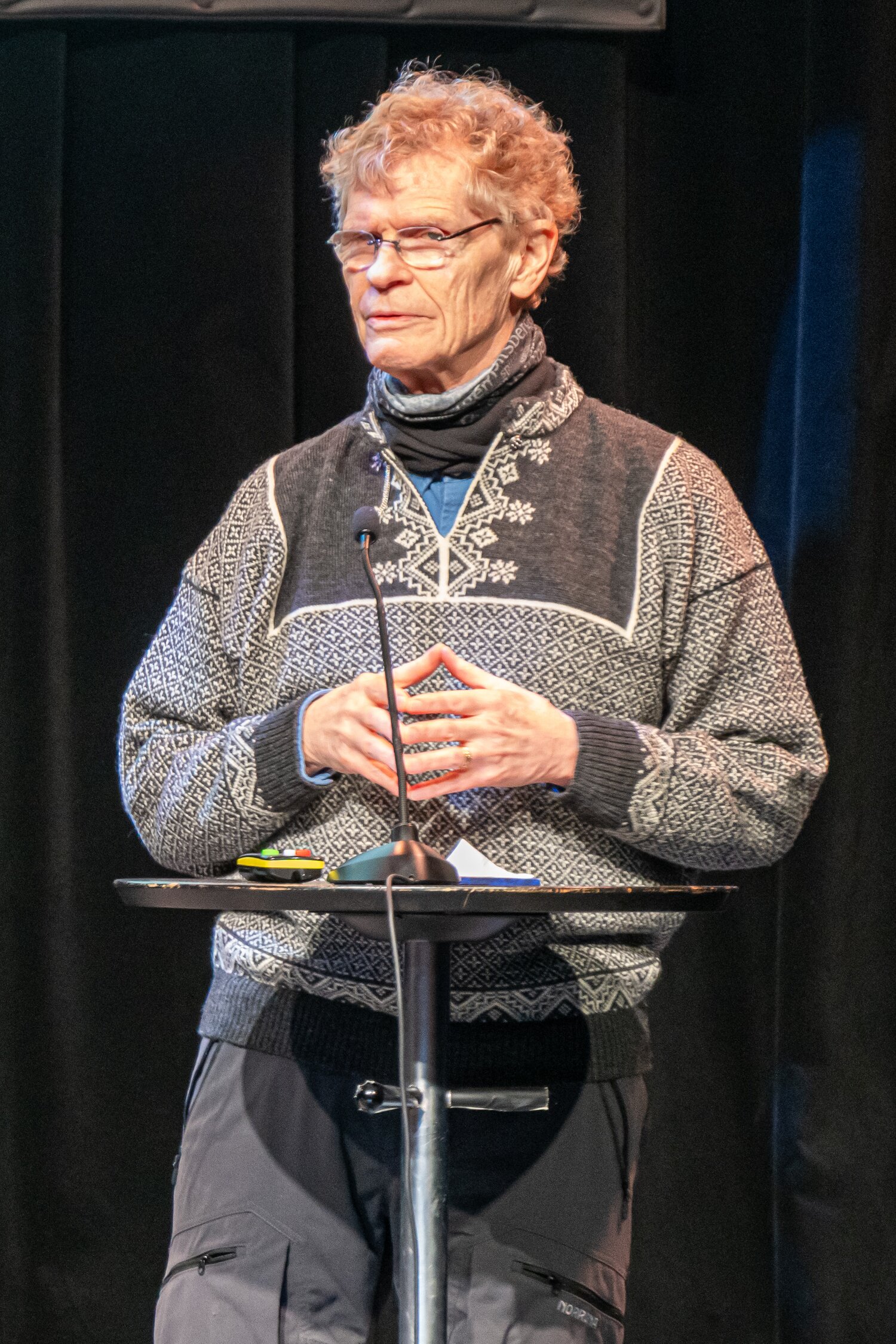
Dr. Cary Fowler, former Executive Director of the Crop Trust, delivers the first keynote address.
Next came a dynamic panel discussion on the critical question of how to move From Policy to Practice: Mobilizing Support for Crop Diversity and Genebanks. Panelists Alwin Kopse, Head of International Affairs at the Swiss Federal Office of Agriculture, Ron Hartman, Director of Global Engagement, Partnership and Resource Mobilization Division at IFAD, and Dr. Éliane Ubalijoro, CEO of CIFOR-ICRAF, shared insights on the importance of a multilateral approach to food security.
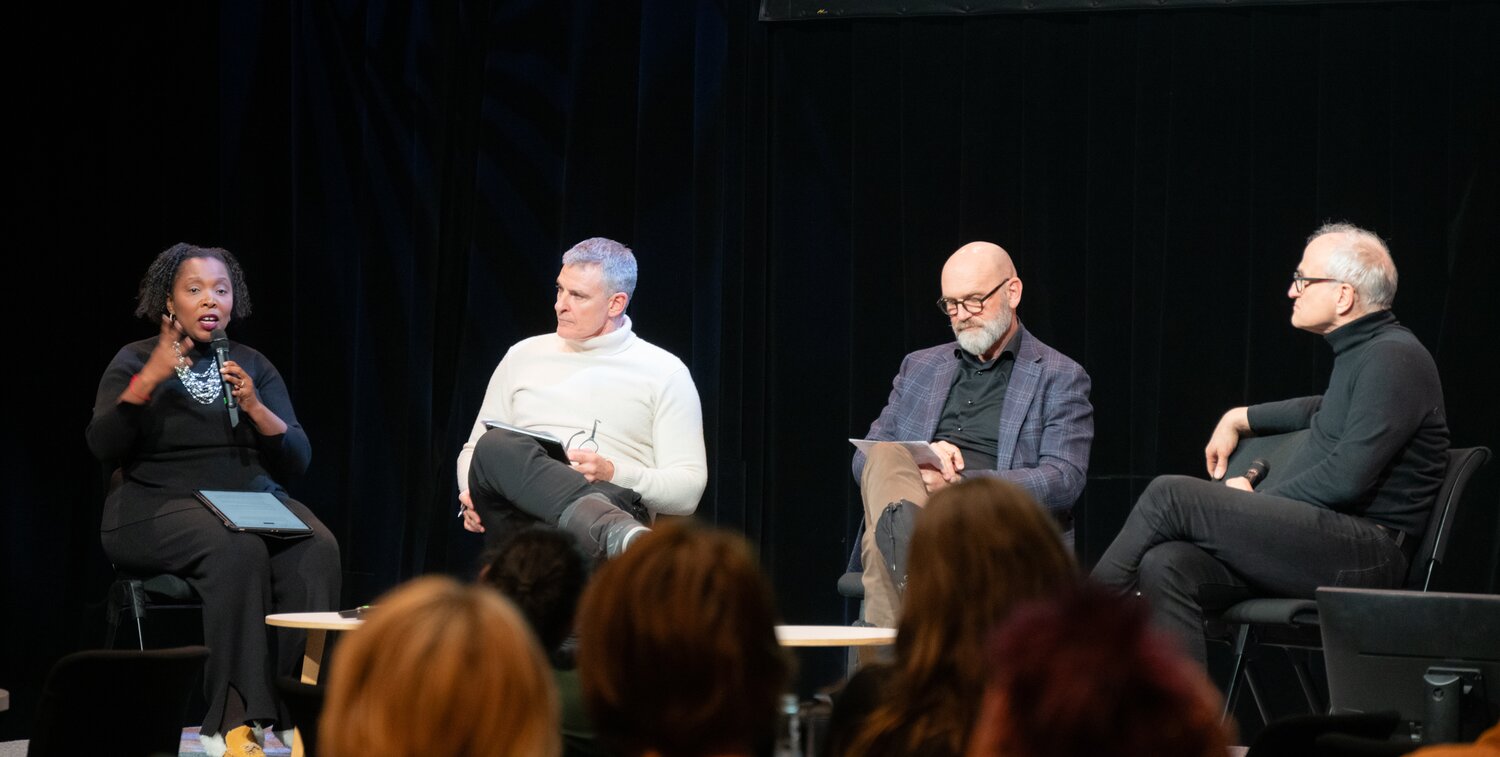
Dr. Éliane Ubalijoro contributes to the discussion amongst fellow panelists.
This discussion shined a light on the urgent need to scale up awareness and communication around crop diversity. Without broad public and political understanding of its value, the momentum needed to protect this diversity remains at risk. The panel pointed out that securing the future of food requires not just policy commitments, but active engagement and investment from all sectors of society.
Dr. Geoffrey Hawtin OBE, also a 2024 World Food Prize Laureate, then took the stage. He emphasized a crucial aspect of genebank work – the vital role of “use” in conserving crop diversity.
“We should be training more breeders, we should be putting more emphasis collectively into making sure that [plant] material is fully evaluated, used and reaches farmers. That underscores the absolute importance of alliances, of partnerships, not just between genebanks and the users, but between the genebanks at the local level and farmers; between genebanks seed companies – both in the public and private sector. If genebanks are going to thrive in the future, they're only going to thrive if their relationship with users is much stronger than it is in most cases today,” said Dr. Hawtin.
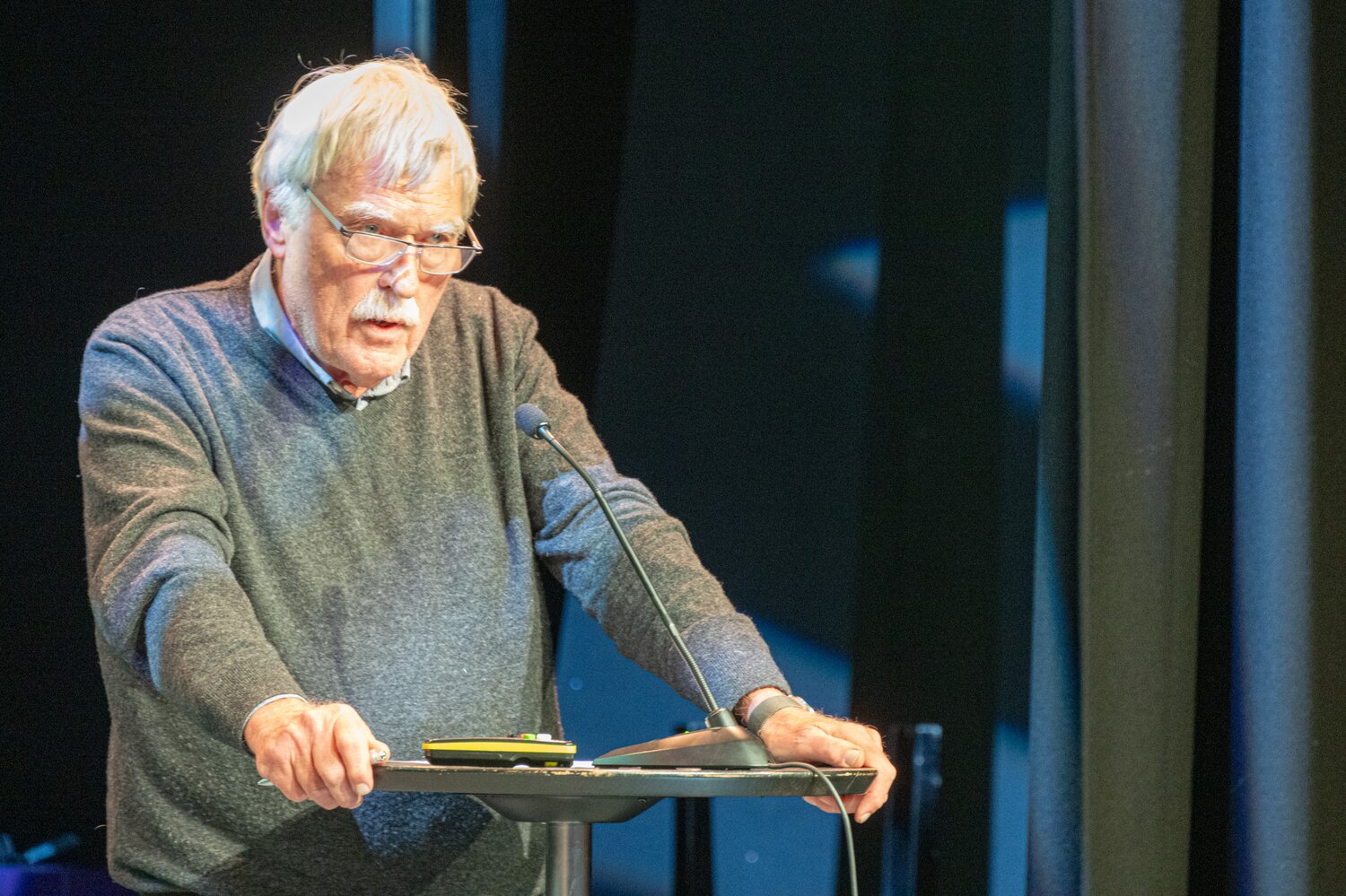
Dr. Geoffrey Hawtin OBE, another former Executive Director of the Crop Trust, delivers the second keynote address.
Following Geoff’s plea for more connected genebanks, the Dialogue wrapped up with a final panel on Building Resilient Genebanks for Global Food Security, moderated by Sarada Krishnan, Director of Programs at the Crop Trust.
Panelists Dr. Nolipher Mponya from Malawi’s Plant Genetic Resources Center and Patrick Kasasa from Zimbabwe’s Community Technology Development Trust, both key partners in the BOLD Project, joined the discussion. They emphasized the vital role of national genebanks in safeguarding their countries' agricultural diversity. As national genebanks, they are mandated to protect the countries’ treasures and create opportunities for underutilized crops, they said, highlighting the critical intersection of conservation, tradition, innovation and food security.
“We also support the government in following conservation strategies for priority crops,” said Dr. Mponya.
“We work with farmers to secure their seeds in community seed banks, which allows them to withdraw seeds when need be. They also participate in crop improvement programs, applying their expertise to choosing the varieties they most need and favor in terms of drought-resilience and taste,” said Mr. Kasasa.
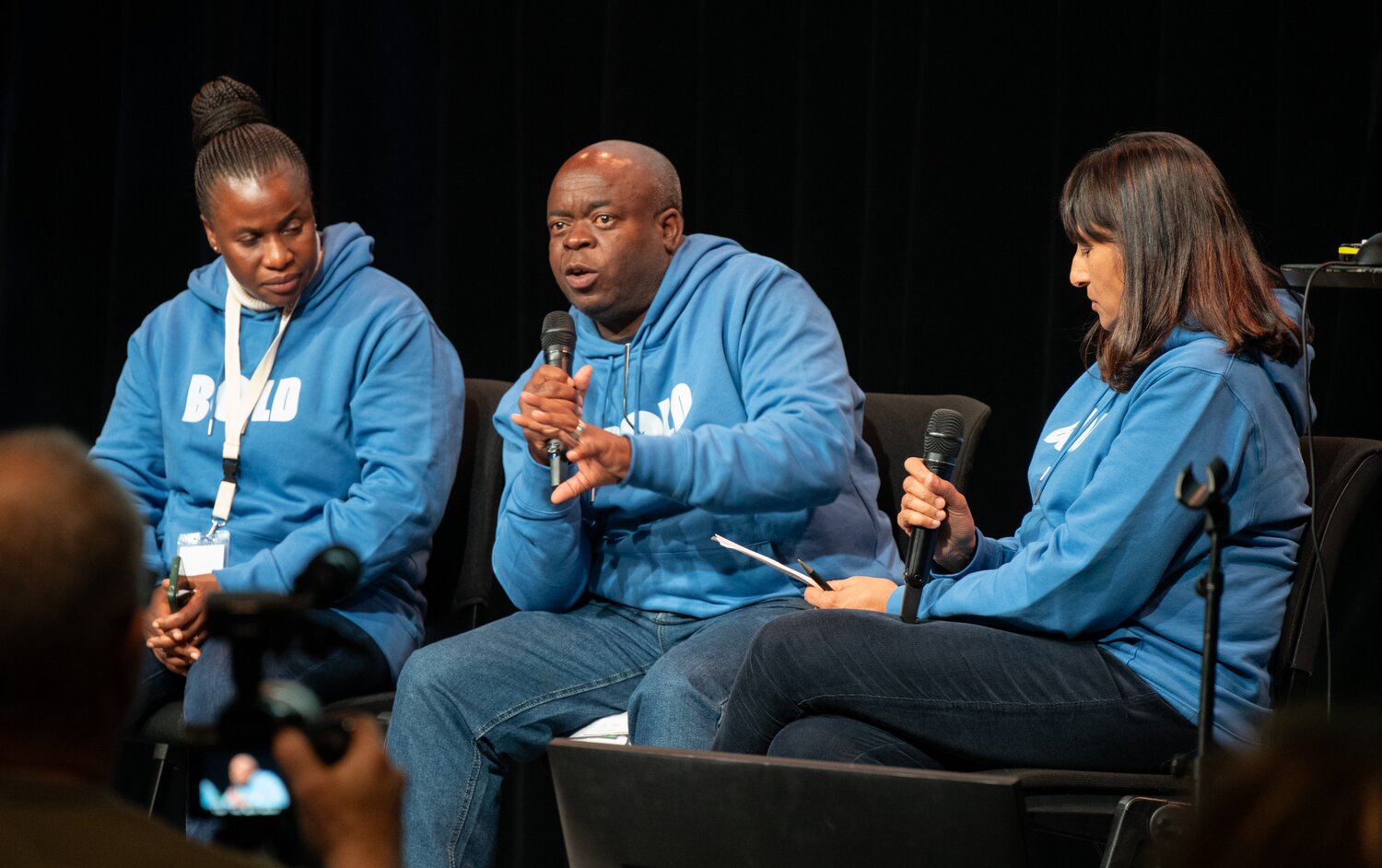
Patrick Kasasa of the Community Technology Development Trust (CTDT) in Zimbabwe engages with fellow BOLD depositors and panelists.
To close the event, Kent Nnadozie, Secretary of the International Treaty on Plant Genetic Resources, emphasized the pivotal role of the Svalbard Global Seed Vault in safeguarding the world’s crop diversity. He delivered a compelling call to action, urging collective efforts to strengthen global conservation and ensure a more resilient food future.
“The seeds do not know any nationality, they know no boundaries. The issue that they address – hunger, food security – knows no borders. In our current situation… where international cooperation and multilateralism are under attack, we should continue to look to the long term, because the Seed Vault was built for the long haul. Let's not forget that,” said Mr. Nnadozie.
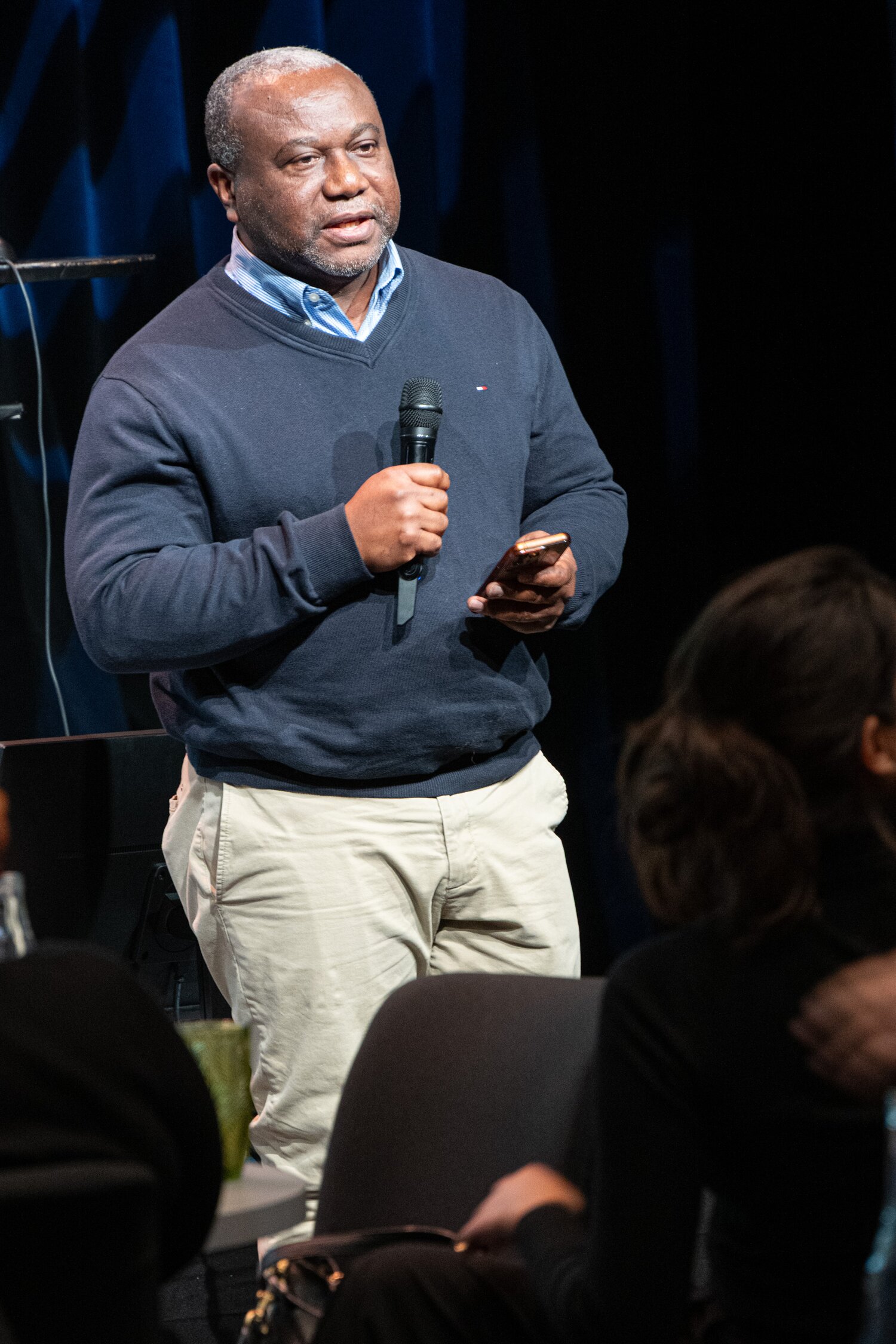
Kent Nnadozie closes the Svalbard International Dialogue with his speech.
Categories: For The Press, For Partners, Climate Change, Food Security

